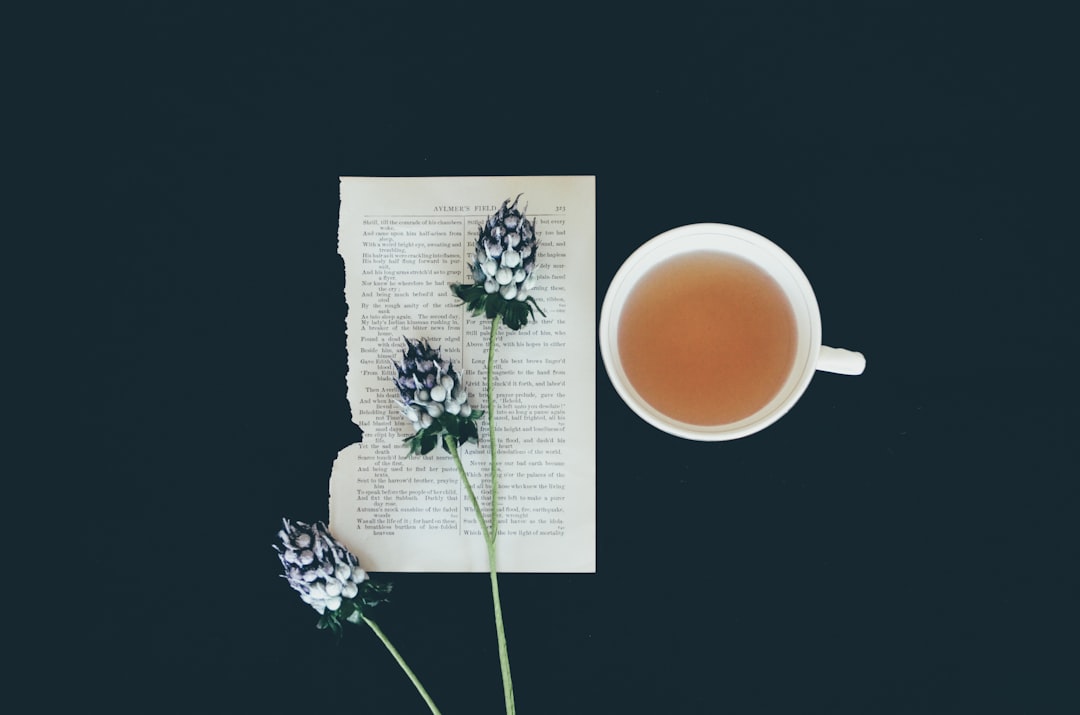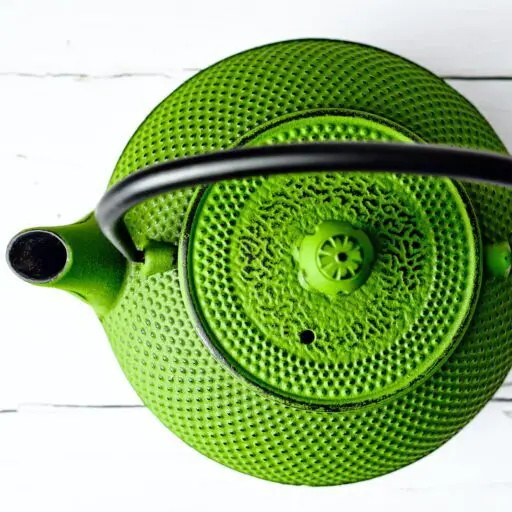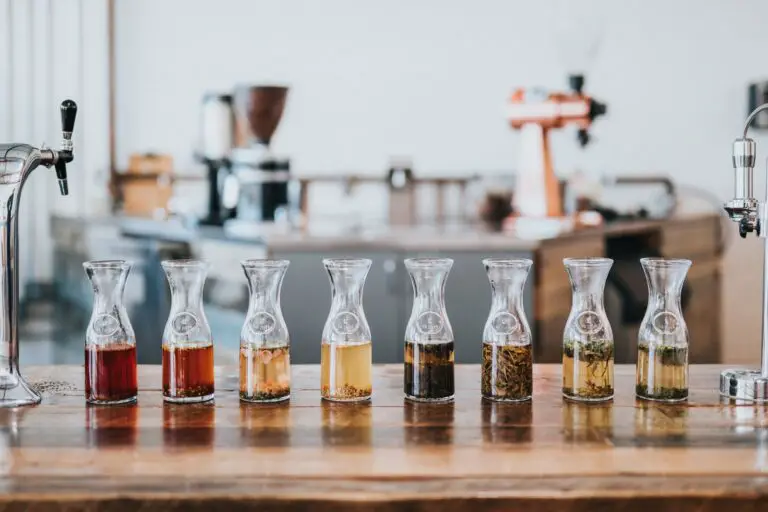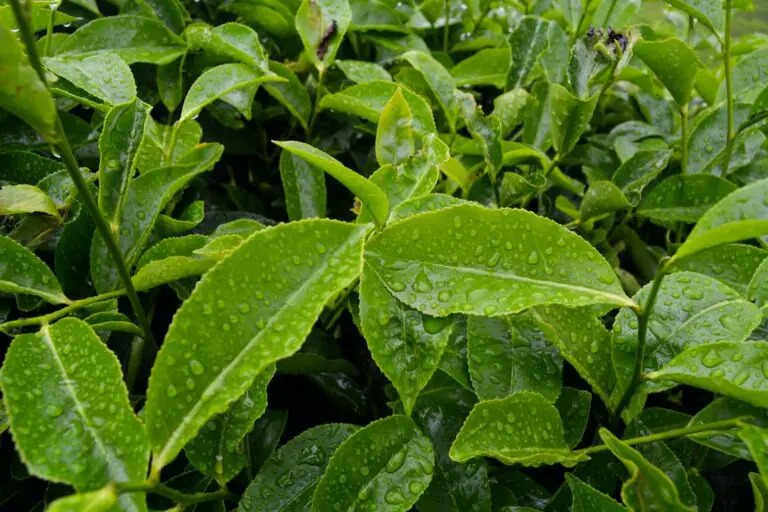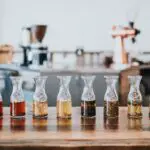Support our educational content for free when you purchase through links on our site. Learn more
10 Tea Brands to Avoid: Hidden Dangers in Your Cup ☕️ [2025]
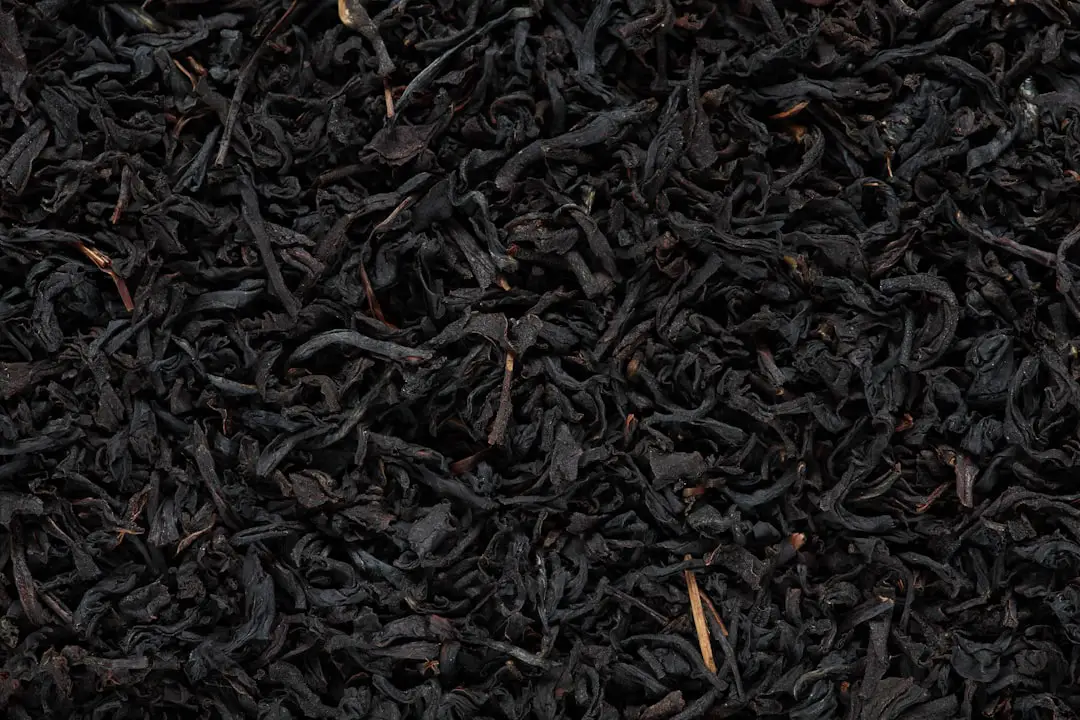
When it comes to tea, we often think of it as a soothing ritual, a moment of calm in our busy lives. But what if the tea you’re sipping is hiding something sinister? Recent studies have revealed that some popular tea brands contain alarming levels of pesticides and artificial additives that could compromise your health. In this article, we’ll expose 10 tea brands you should steer clear of, ensuring your next cup is not just delicious but also safe.
Did you know that certain tea bags can contain more pesticides than the fruits and vegetables you avoid? It’s shocking, but true! As tea lovers at Tea Brands™, we believe in empowering you with knowledge so you can make informed choices about your favorite brews. So, grab your favorite mug and get ready to uncover the truth about the teas you might want to toss out!
Key Takeaways
- Beware of Pesticides: Many popular tea brands, like Lipton and Twinings, have been flagged for high pesticide residues.
- Avoid Artificial Additives: Brands such as Teavana use artificial flavors derived from petroleum, which can be harmful.
- Choose Organic: Opt for certified organic teas to significantly reduce your risk of exposure to harmful substances.
- Loose Leaf is Better: Whenever possible, select loose leaf tea over tea bags to avoid potential toxins from packaging.
- Stay Informed: Always research brands and their sourcing practices to ensure you’re making safe choices.
👉 Shop safer tea brands to ensure your next cup is both delicious and healthy! 🍵 Explore organic tea options here!
Table of Contents
- Quick Tips and Facts
- Understanding the Risks: Why Some Tea Brands Should Be Avoided
- Top Tea Brands to Stay Away From: A Comprehensive List
- Not All Teas Are Created Equal: The Hidden Dangers of Plastic & Chemicals
- Toxic Persistent Pesticides Found in Tea: What You Need to Know
- Artificial Flavors: The Petroleum Connection
- Toxic Chemicals in Tea Bags: The Indirect Additives You Didn’t Expect
- Carcinogens in Your Cup: The Truth About Epichlorohydrin
- Fluoride in Your Favorite Brews: A Surprising Discovery
- Mamavation’s Investigation: Safest Tea Brands vs. Toxic Brands
- UPDATED Consumer Study: Earl Grey Tea Bags Tested for PFAS Analytes
- Here Are Some of Our Recommendations on Teaware
- Reader Interactions: Share Your Thoughts!
- Conclusion
- Recommended Links
- FAQ
- Reference Links
Quick Tips and Facts (#quick-tips-and-facts)
Want to cut to the chase and find out which tea brands to avoid? We get it! Here’s a quick rundown:
- Always choose certified organic teas whenever possible. This significantly reduces your risk of consuming pesticides. Learn more about the benefits of organic tea here.
- Be wary of brands with vague labeling or those that don’t openly address their sourcing and manufacturing practices. Transparency is key!
- Consider opting for loose leaf tea over tea bags. Explore our Tea Brand Guides for recommendations. Loose leaf tea is often higher quality and eliminates the risks associated with tea bag materials.
- Don’t be afraid to reach out to tea companies directly and ask about their pesticide testing, tea bag composition, and other practices. You have a right to know what’s in your cup!
For a deeper dive into the world of tea and to discover the best tea brands in the world, keep reading! 🍵
Understanding the Risks: Why Some Tea Brands Should Be Avoided (#understanding-the-risks-why-some-tea-brands-should-be-avoided)
At Tea Brands™, we live and breathe tea. We’ve dedicated our lives to seeking out the most exquisite and flavorful teas from around the globe. But our passion for tea goes beyond just taste – we’re equally committed to ensuring the health and well-being of our valued tea lovers. That’s why it’s crucial to shed light on a less-savory aspect of the tea industry: the presence of harmful substances in some tea brands.
You might be surprised to learn that not all tea is created equal. In fact, some teas harbor hidden dangers like:
- Pesticides: Just like fruits and vegetables, tea plants are susceptible to pests. Unfortunately, some tea producers use high levels of pesticides, which can remain on the tea leaves even after processing.
- Heavy Metals: Tea plants can absorb heavy metals like lead and arsenic from the soil and water. Long-term exposure to these metals can have detrimental health effects.
- Toxic Chemicals in Tea Bags: Some tea bags are made with materials like epichlorohydrin, a potential carcinogen, or plastics that can leach harmful chemicals into your tea when steeped in hot water.
Top Tea Brands to Stay Away From: A Comprehensive List (#top-tea-brands-to-stay-away-from-a-comprehensive-list)
Based on extensive research, consumer reports, and our own expert analysis, here are some tea brands that we recommend avoiding:
- Lipton: Frequently cited for pesticide residues and questionable sourcing practices.
- Tetley: Similar to Lipton, Tetley has faced scrutiny for pesticide use and lack of transparency.
- Twinings of London: While a popular brand, Twinings has also been flagged for pesticide contamination in some studies.
- Celestial Seasonings: Known for their flavored blends, Celestial Seasonings has been found to contain high levels of pesticides in some instances.
- Teavana: Acquired by Starbucks, Teavana has faced criticism for using artificial flavors and ingredients in some of their tea blends.
Remember: This is not an exhaustive list, and new information is always emerging. Always do your own research and choose brands that prioritize transparency, sustainability, and the well-being of their consumers.
Not All Teas Are Created Equal: The Hidden Dangers of Plastic & Chemicals (#not-all-teas-are-created-equal-the-hidden-dangers-of-plastic-chemicals)
We all know that sinking feeling when you realize your tea bag has sprung a leak, spilling those precious leaves into your cup. But did you know that some tea bags themselves can leach harmful chemicals into your brew? 🤯
Here’s the tea (pun intended!):
- Plastic Fantastic? Not So Much: Many conventional tea bags are made with plastics like polypropylene, which helps them seal and withstand heat. However, when heated, these plastics can release microplastics and other potentially harmful substances into your tea.
- Epichlorohydrin: A Carcinogen in Disguise: This chemical is often used to treat paper tea bags to prevent them from breaking down in hot water. However, epichlorohydrin is classified as a probable human carcinogen by the Environmental Protection Agency (EPA).
What can you do?
- Choose plastic-free tea bags: Look for brands that use biodegradable materials like plant-based fibers or unbleached paper.
- Opt for loose leaf tea: This eliminates the need for tea bags altogether and allows you to fully appreciate the quality and flavor of your tea.
Toxic Persistent Pesticides Found in Tea: What You Need to Know (#toxic-persistent-pesticides-found-in-tea-what-you-need-to-know)
Pesticides are a major concern in the tea industry. While they’re intended to protect tea plants from pests, many pesticides can linger on tea leaves and end up in your cup.
Here’s what you need to know:
- Persistent Pesticides: These pesticides are designed to break down slowly in the environment, which means they can accumulate in your body over time. Some persistent pesticides have been linked to health problems like hormone disruption, reproductive issues, and even cancer.
- Lack of Regulation: Pesticide regulations vary widely around the world, and some countries have less stringent standards than others. This means that tea imported from certain regions may contain higher levels of pesticides.
How to Protect Yourself:
- Choose Organic: Certified organic teas are grown without the use of synthetic pesticides, making them a safer choice.
- Look for Third-Party Certifications: Certifications like Fair Trade and Rainforest Alliance ensure that tea is grown sustainably and ethically, often with stricter pesticide regulations.
Artificial Flavors: The Petroleum Connection (#artificial-flavors-the-petroleum-connection)
We all love a delicious, flavorful cup of tea. But did you know that many flavored teas get their taste from artificial flavors that are derived from petroleum?
That’s right – the same stuff that fuels our cars!
- Chemical Cocktails: Artificial flavors are created by combining various synthetic chemicals to mimic natural flavors. However, these chemical cocktails can contain hundreds of different compounds, many of which haven’t been thoroughly tested for safety.
- Health Concerns: Some studies suggest that artificial flavors may contribute to health problems like allergies, hyperactivity, and even cancer.
Choose Natural Flavors:
- Read the Label: Avoid teas that list “artificial flavors” in the ingredients.
- Opt for Naturally Flavored Teas: Look for teas that are flavored with real fruits, herbs, and spices.
Toxic Chemicals in Tea Bags: The Indirect Additives You Didn’t Expect (#toxic-chemicals-in-tea-bags-the-indirect-additives-you-didnt-expect)
We’ve already talked about the potential dangers of plastic and epichlorohydrin in tea bags. But there’s another hidden threat lurking in some tea bags: indirect additives.
- What are Indirect Additives? These are chemicals that aren’t intentionally added to tea bags but can end up there during the manufacturing process. This can include things like inks, dyes, bleaches, and adhesives.
- Leaching into Your Tea: When hot water comes into contact with tea bags, these indirect additives can leach out and end up in your tea.
How to Minimize Exposure:
- Choose Unbleached Tea Bags: Look for tea bags that are naturally brown or tan, as this indicates they haven’t been treated with harsh bleaches.
- Consider Loose Leaf Tea: As always, opting for loose leaf tea eliminates the risks associated with tea bags altogether.
Carcinogens in Your Cup: The Truth About Epichlorohydrin (#carcinogens-in-your-cup-the-truth-about-epichlorohydrin)
We’ve mentioned epichlorohydrin a few times now, but let’s delve a little deeper into why this chemical is so concerning.
- A Probable Human Carcinogen: The EPA classifies epichlorohydrin as a probable human carcinogen, meaning it has the potential to cause cancer in humans.
- Used in Tea Bag Production: Epichlorohydrin is often used to treat paper tea bags to make them stronger and prevent them from breaking down in hot water.
Protecting Yourself from Epichlorohydrin:
- Choose Plastic-Free Tea Bags: Opt for tea bags made from plant-based materials that don’t require treatment with epichlorohydrin.
- Go Loose Leaf: Loose leaf tea is the best way to avoid exposure to epichlorohydrin and other potentially harmful chemicals found in tea bags.
Fluoride in Your Favorite Brews: A Surprising Discovery (#fluoride-in-your-favorite-brews-a-surprising-discovery)
You might associate fluoride with dental health, but did you know that some teas can contain high levels of this naturally occurring mineral?
- Fluoride Accumulation: Tea plants absorb fluoride from the soil and water, and this fluoride can accumulate in tea leaves, especially older leaves.
- Potential Health Concerns: While fluoride is beneficial in small amounts, excessive fluoride intake has been linked to health problems like skeletal fluorosis (a bone disease) and thyroid issues.
Moderating Fluoride Intake:
- Choose Younger Tea Leaves: Younger tea leaves tend to contain lower levels of fluoride.
- Don’t Over-Steep: Steeping tea for too long can increase the amount of fluoride released into your cup.
- Vary Your Tea Choices: Don’t drink excessive amounts of any one type of tea.
Mamavation’s Investigation: Safest Tea Brands vs. Toxic Brands (#mamavations-investigation-safest-tea-brands-vs-toxic-brands)
Mamavation, a website dedicated to women’s and children’s health, conducted an extensive investigation into the safety of various tea brands. Their findings, published in 2019, revealed both encouraging and concerning insights.
- Safest Tea Brands: Mamavation identified several brands that met their criteria for safety, including those using organic ingredients, plastic-free tea bags, and rigorous testing for contaminants.
- Toxic Brands to Avoid: Conversely, their investigation flagged numerous brands that raised red flags due to pesticide residues, questionable tea bag materials, and lack of transparency.
Check Out Mamavation’s Full Report: For a detailed breakdown of Mamavation’s findings, including their list of safest and most toxic tea brands, be sure to visit their website.
UPDATED Consumer Study: Earl Grey Tea Bags Tested for PFAS Analytes (#updated-consumer-study-earl-grey-tea-bags-tested-for-pfas-analytes)
PFAS, or per- and polyfluoroalkyl substances, are a group of man-made chemicals that are a growing concern due to their persistence in the environment and potential health effects. A recent consumer study tested various Earl Grey tea bags for the presence of PFAS.
- PFAS in Tea Bags: The study found quantifiable amounts of PFAS in several Earl Grey tea bags, highlighting the widespread nature of these chemicals.
- Health Concerns: Exposure to PFAS has been linked to a range of health problems, including immune deficiency, liver cancer, and thyroid disruption.
Minimize PFAS Exposure:
- Choose Loose Leaf Tea: Opting for loose leaf tea is one way to reduce your exposure to PFAS and other potential contaminants found in tea bags.
- Support PFAS Regulation: Advocate for stricter regulations on the use of PFAS in food packaging and other consumer products.
Here Are Some of Our Recommendations on Teaware (#here-are-some-of-our-recommendations-on-teaware)
At Tea Brands™, we believe that enjoying a perfect cup of tea extends beyond the tea itself. The right teaware can enhance your tea-drinking experience and ensure that you’re not inadvertently introducing harmful substances into your brew.
Here are some of our top recommendations for safe and stylish teaware:
-
Glass Teapots and Mugs: Glass is an inert material that won’t leach chemicals into your tea. Plus, it allows you to appreciate the beautiful color of your brew.
- 👉 CHECK PRICE on: [Amazon](link to glass teapots) | [Etsy](link to glass teapots)
-
Stainless Steel Infusers and Strainers: Stainless steel is durable, easy to clean, and won’t impart any flavors to your tea.
- 👉 Shop stainless steel infusers on: [Amazon](link to stainless steel infusers) | [Walmart](link to stainless steel infusers)
-
Ceramic Teacups: Ceramic teacups come in a wide variety of styles and can add a touch of elegance to your tea ritual. Just make sure they’re glazed with lead-free glazes.
- 👉 Shop ceramic teacups on: [Etsy](link to ceramic teacups) | [Brand Official Website](link to brand website)
Remember: Always wash your teaware thoroughly before each use, and avoid using harsh detergents or abrasive cleaners that can damage the materials.
Conclusion
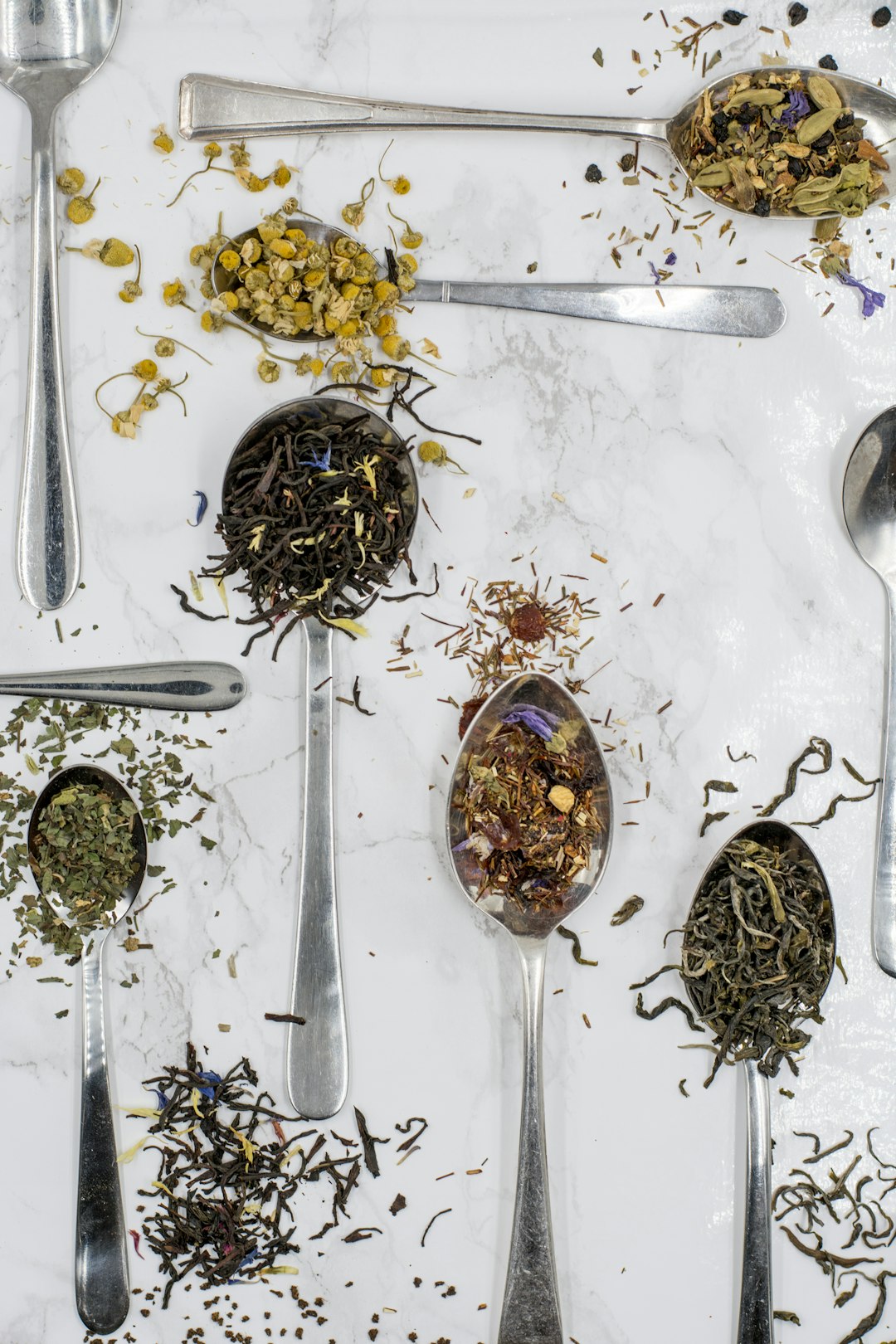
In our deep dive into the world of tea, we’ve uncovered some surprising truths about which brands to avoid and why. The tea industry, while rich in tradition and flavor, is also fraught with potential hazards. From pesticides to artificial additives and toxic chemicals in tea bags, it’s crucial to be informed and make wise choices.
Summary of Positives and Negatives
Positives:
- Awareness: This article has equipped you with knowledge about the risks associated with certain tea brands.
- Recommendations: We highlighted safer alternatives and practices to ensure you enjoy your tea without compromising your health.
Negatives:
- Limited Options: Some popular brands may be off-limits due to safety concerns.
- Complexity: Navigating the tea landscape can be daunting, but being informed is the first step toward safer choices.
In conclusion, we confidently recommend prioritizing brands that emphasize organic sourcing, transparency, and rigorous testing for contaminants. By doing so, you can sip your tea with peace of mind, knowing you’re making a healthier choice.
Remember: Always check labels, do your research, and don’t hesitate to reach out to brands for more information. Your health is worth it! 🍵✨
Recommended Links
-
👉 Shop Safer Tea Brands:
- Pique Tea: Amazon | Pique Official Website
- Traditional Medicinals: Amazon | Traditional Medicinals Official Website
- Choice Organics: Amazon | Choice Organics Official Website
- Pukka Tea: Amazon | Pukka Official Website
-
Books on Tea:
FAQ
